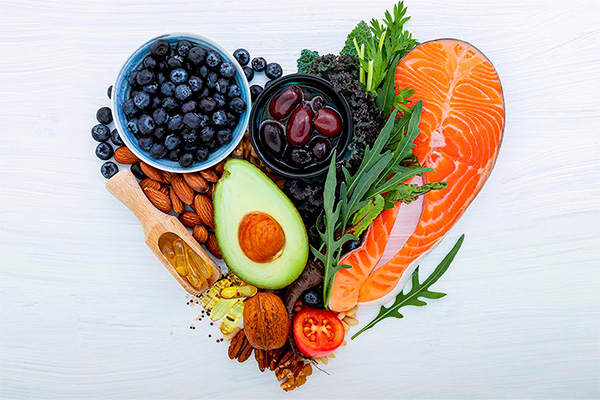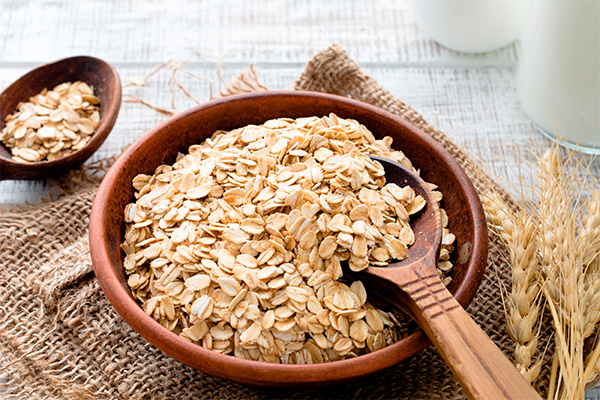When looking after our general health and well-being, a top priority should be to support the heart and the circulatory system. Below are some of the most impactful nutritional changes we could consider for supporting one of the body’s busiest organs.
1. Eat the right fats
Oily fish like salmon, mackerel and anchovies are all good sources of omega-3 fats, which demonstrate benefits to heart health. Omega-3 fats may decrease circulating levels of others fats (called triglycerides) which in excess, can increase our risk of cardiovascular issues1. Omega-3 fatty acid consumption is associated with a range of other benefits to human health.
If oily fish isn’t to your taste, fish oil supplements are a great choice. Vegan? Don’t fret either. Look for an algae-based omega-3 supplement to get your animal-free source of heart-healthy oils.
2. Consider a Mediterranean-style diet
Based on the traditional diets of Greek & Italian populations, the Mediterranean diet has long been associated with a lower risk of cardiovascular disease compared to UK and American diets.2
The Mediterranean diet includes plenty of omega-3 from oily fish (see above), but also includes plenty of vegetables, fruits, whole grains, nuts, seeds, and olive oil. It also features a near absence of processed meats, refined oils, and simple sugars.
3. Fill your plate with colour
Whilst you’re increasing your vegetable and fruit intakes, try to look for colourful ones. When it comes to the food we eat, a bright colour normally indicates the presence of phytonutrients which are plant-based chemicals that in research, often demonstrate great health benefits.
Blackberries and blueberries, for example, contain anthocyanins which are dark blue/purple pigments that can help counteract oxidative stress.
Turmeric contains curcumin, a phytonutrient which gives the flavourful spice a bright golden colour (and a range of possible health benefits).
4. Oats (beta-glucans) 
Perhaps surprisingly, simple oats may be major contributors to good heart health. Oats naturally contain beta-glucans, a type of fibre that if consumed enough (3g per day), may reduce LDL cholesterol which is the fatty stuff that can contribute to the build-up of plaque in our blood vessels.3
5. Coenzyme Q10
Coenzyme Q10 describes a substance we produce in the liver which helps our body cells access and utilise energy. Cells of busy organs, such as the heart, depend especially on Q10 to obtain adequate energy. Though we produce CoQ10 ourselves, our production begins to decline after our early 20s.
Coenzyme Q10 has also been included in two major health studies, one named Q-symbio, which was published in JACC: Heart Failure and the other named KiSel-10, which was published in 2013, in the esteemed International Journal of Cardiology.
Q10 is difficult to obtain from the diet and we normally struggle to absorb it from the gut. Bio-Quinone Q10 from Pharma Nord utilises a patented delivery form for this reason, demonstrating reliable absorption.
Read more about supporting your health here >
References
1. Shearer GC, Savinova OV, Harris WS. Fish oil -- how does it reduce plasma triglycerides?. Biochim Biophys Acta. 2012;1821(5):843-851. doi:10.1016/j.bbalip.2011.10.011
2. Dontas AS, Zerefos NS, Panagiotakos DB, Vlachou C, Valis DA. Mediterranean diet and prevention of coronary heart disease in the elderly [published correction appears in Clin Interv Aging. 2008;3(2):397. Vlachou, Cleo [added]]. Clin Interv Aging. 2007;2(1):109-115. doi:10.2147/ciia.2007.2.1.109
3. Scientific Opinion on the substantiation of a health claim related to oat beta glucan and lowering blood cholesterol and reduced risk of (coronary) heart disease pursuant to Article 14 of Regulation (EC) No 1924/2006
4. Mortensen SA, Rosenfeldt F, Kumar A, et al. The effect of coenzyme Q10 on morbidity and mortality in chronic heart failure: results from Q-SYMBIO: a randomized double-blind trial. JACC Heart Fail. 2014;2(6):641-649. doi:10.1016/j.jchf.2014.06.008
5. Danik JS, Manson JE. Vitamin d and cardiovascular disease. Curr Treat Options Cardiovasc Med. 2012;14(4):414-424. doi:10.1007/s11936-012-0183-8

